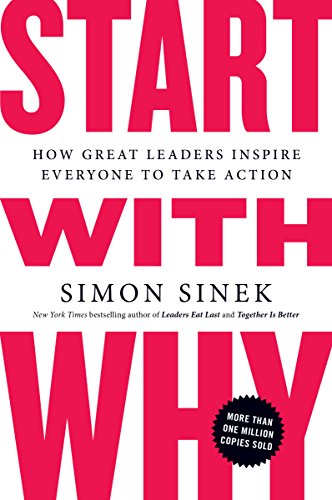

This article is an excerpt from the Shortform summary of "Start With Why" by Simon Sinek. Shortform has the world's best summaries of books you should be reading.
Like this article? Sign up for a free trial here .
Simon Sinek views trust as foundational in a successful business. What is Simon Sinek’s advice on building trust in the workplace? Is it important to trust your gut?
We’ll cover Simon Sinek’s views on trust and examine why trust is integral to creating and maintaining a successful business.
Simon Sinek: Trust and Culture Go Together
Simon Sinek says trust is important because it’s the foundational building block of culture. Culture emerges when a group of people who believe and value the same things unite around those shared ideals. When we are around people who think like us, we start to trust them.
On an individual level, we form communities with people who share similar beliefs, values, and ideals. In other words, we form communities with people who share our WHY.
Consequently, those with strong WHYs tend to attract like-minded people and create a sense of belonging. That’s why companies with strong WHYs tend to have strong cultures and high levels of trust, both internally and externally. Simon Sinek believes trust is both a precursor and a result of a strong culture.
Being in a community of people who are there for the same reasons builds trust. We believe that someone who shares our beliefs is also more likely to have our back and not take advantage of us.
- Consider hiring a babysitter. You don’t know much about this person, other than that she’s from the same community and thus might have the same values as you. Yet you trust this near-stranger with taking care of people dearest to you – your children.
In turn, having trust allows people to take risks.
- If you didn’t trust your babysitter, you wouldn’t take the risk of leaving your house to have a night out.
- Similarly, in the workplace, if you didn’t trust your leadership or team to take care of you if you took a risk and failed, you wouldn’t take that risk.
- Without trust, people will worry about protecting themselves, which is the cause of office politics.
Simon Sinek on Trust and the Limbic Brain
Simon Sinek teaches that the feeling of trust is located in the limbic brain (our emotional center).
That’s why personal recommendations from people we trust hold so much power: it taps into our limbic brain. When we trust the person, we’re more likely to follow their recommendations, even if they seem illogical.
According to Simon Sinek, trust beats out rationality. The trick to inspirational marketing, then, is to activate networks of trusted people to talk about you and your company.
Case Study from Simon Sinek: Trust and Continental Airlines
Continental Airlines was largely considered one of the worst airlines in the United States in the 1980s. Without a clear WHY, the company made decisions that were expedient, not correct. That led to employee exploitation, which destroyed employees’ trust in their company and leadership. In turn, employees mistreated the customers. Continental Airlines’ company culture was miserable, and the airline was in a downward spiral.
When Gordon Bethune became CEO in 1994, the company had just lost $600 million and ranked last in every measurable metric.
Bethune could see that the company had no culture and no common vision. So he decided to fix Continental by creating trust between the company and its employees. Some of the ways he did this were:
- Creating an open-door policy for every Continental employee and giving them access to the company’s headquarters (which they previously did not have)
- Only hiring team players—and letting go employees who weren’t interested in his vision
- Giving every single employee a bonus each month that Continental had one of the top five highest on-time percentages
- Creating a family, “we’re in this together” atmosphere for employees, which tricked down to customers
The year after Bethune took the reins, Continental posted a $250 million profit. And under Bethune’s leadership, Continental would go from being one of the worst airlines in the United States to one of the best.
And it all happened because Bethune focused on earning trust. That trust created a company culture where employees felt protected and inspired, which led to incredible success. This is one of Simon Sinek’s examples of trust and its results.
Simon Sinek Says Trust Your Intuition
Simon Sinek also addresses trust in a different way. Trust of oneself. Business runs on a series of decisions. Whether it’s deciding what to sell, who to sell it to, or how to staff your organization, leaders have to make tons of decisions every day.
Many businesses and people rely on data to guide their decision making. We obsess over discovering details, thinking this will lead to better decision-making. We read books and journals, go to trade conferences, and ask our friends for more information.
But in many situations, more data doesn’t help make a better decision. We’re often tempted to think that a project didn’t work because of some missing vital detail. But sometimes, we have the entire premise of our information gathering incorrect, or we start with a wrong critical assumption. In these cases, no amount of extra data would have helped us make the right decision.
Sinek uses an example to illustrate how easily we can make mistaken assumptions. Read this description of a leader and imagine who it is:
“A 43-year-old man was sworn in as the leader of his country on a cold January day. This man was raised Roman Catholic. His predecessor was a general who led his nation’s armed forces in a wary to defeat Germany.”
Who are you picturing? It’s tempting to think of John F. Kennedy. But in fact, it’s January 1933, and the description is of Adolf Hitler.
The point is that it’s easy to make wrong assumptions without knowing it. In these cases, collecting more data might not correct your decisionmaking, because you start with a flawed assumption about what’s driving your business.
Trust Your Gut?
What’s the alternative to making decisions with data? Simon Sinek says trust your gut. In many situations, we have no relevant data or ignore the evidence, yet we make decisions using our intuition that turn out just fine.
When you start with WHY, you define a guiding direction that allows you to make proper decisions, even with incomplete data. Essentially, your WHY is the correct assumption about your business, and you avoid getting misled by false assumptions.
Sinek uses an analogy of a group of American executives who visited a Japanese car assembly line. The executives were confused by the door installation process. In the United States, a line worker would take a rubber mallet and tap the door on the edges to fit it perfectly into the car frame. In the Japanese manufacturing line, this step was missing. The American executives were perplexed.
The Japanese guide explained: their doors simply fit without manual adjustment, because they were designed to fit perfectly from the beginning. They engineered the right outcome from the beginning.
When you know WHY you’re doing what you’re doing, you’re able to start making correct decisions from the outset. This is why Simon Sinek counsels you to trust your gut.
———End of Preview———

Like what you just read? Read the rest of the world's best summary of "Start With Why" at Shortform . Learn the book's critical concepts in 20 minutes or less .
Here's what you'll find in our full Start With Why summary :
- What Steve Jobs did right compared to every other business leader
- How to define your organization's WHY
- How to help your organization avoid losing its edge as it succeeds






